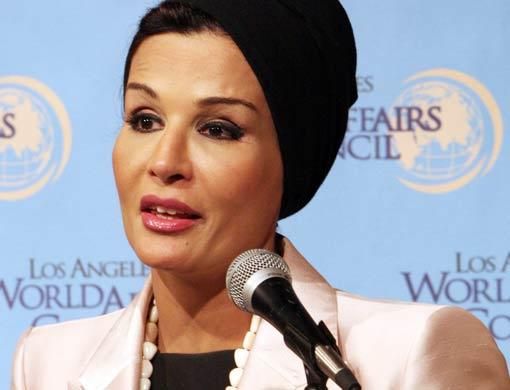Doha: The critical question that dominated the minds of more than 450 Arab scientists who met for the first conference of Arab expatriate scientists was how citizens in the Gulf region could maintain sustainable development when their natural wealth of oil and gas runs out.
"It might take more than 100 years for oil revenue to stop pouring into national budgets in the Gulf, but it is justifiable for policymakers in the region to develop an existing system in order to meet the needs of sustainable development rather than waiting to face an unpleasant situation in the future," Dr Adel Sharif, Director of the Centre for Osmosis Research and Applications at the UK's University of Surrey told Gulf News.
He said the recent increase in oil prices had made it even more urgent to discuss the future of the region in the absence of oil contributions.
"The volatility of the market is worrying everyone in the world including oil-producing nations. It is fair to worry about the future because the price which has increased sharply in the past few months could drop again in the future," he said.
Sharif, who is originally from Iraq, said Gulf governments had to address three major challenges in the fields of energy, environment and healthcare.
Challenges
The future of Qatar's health service and how to prepare workers in the field to meet the challenges facing the nation in a cost-effective manner was addressed by Dr Ghalia Al Thani, Chairwoman of the National Health Authority (NHA).
She said the NHA was established in Qatar in 2005 to succeed the Ministry of Health. The authority was charged with overseeing a vision to make healthcare in Qatar among the best in the world which involves promoting the development and performance of the health system in the country.
Dr Al Thani told Gulf News that the medical sector was facing genuine challenges in terms of coping with the future requirements of citizens in the Gulf. She said Qatar had to prepare its health sector to meet the needs of health risks resulting from changing lifestyles in the region.
She said the health sector was not only preparing hospitals and clinics to deal with the increasing number of patients in the country. It went beyond this to check lifestyle factors.
She said creating an atmosphere that put an emphasis on excellence in healthcare was top of the development agenda.
"It is obvious that we cannot have evidence-based policies, strategies or objectives without appropriate and accurate research."
Dr Al Thani said that the NHA was conducting comprehensive research on diseases (both communicable and non-communicable) in addition to research on food and water safety and environmental health.
She said the NHA was working on two major projects concerning consumption of tobacco and shisha amongst youngsters and the prevalence and determinants of tobacco use in secondary schools.
'Trust my vision'
Shaikha Mouzah Bint Nasser Al Missned, wife of the Emir of Qatar, on Thursday urged Arab scientists in Doha to put trust in her vision and help her develop Qatar into a knowledge-based society.
In her closing remarks at the First Conference for Expatriate Arab Scientists-QFIRST 2007 she said she was committed to providing a suitable environment that would support Arab scientists' research. More than 450 scientists pledged at the end of the conference to establish six projects in the fields of biomedical research, information technology and the environment, two in each field, as the first batch of a long-term partnership programme between the Qatar Foundation and Arab scientists.
She hoped the two sides would work together and strengthen trust.
"Some of us may have concerns based on historical roots suggesting the failure of such programmes. There are indications that should reassure us, like the allocation of 2.8 per cent of the GNP (gross national product) of Qatar for the promotion of science and scientific research," she said.
She said the two parties should develop opportunities for collaboration between educational and scientific research systems.
On another level, she said, the two parties needed to enable the scientific research system to perform its main duty, which was to rally all budding national researchers and to provide the right environment for the development of their talents.
"I place my trust in all of you to continue with the serious work of building the future," she said.












